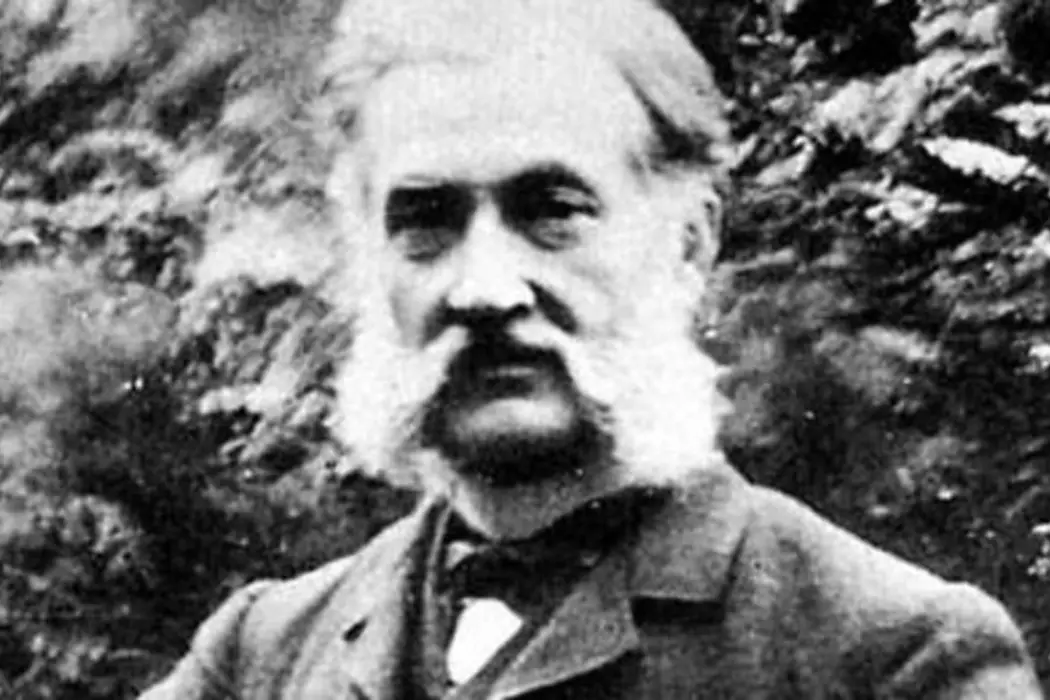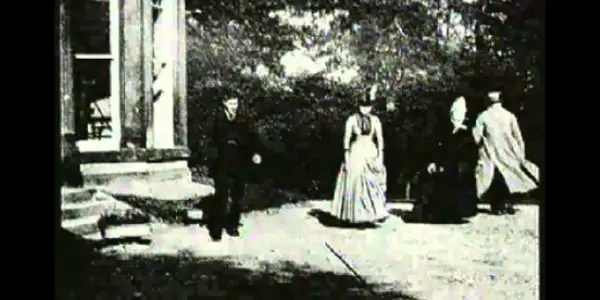Louis Le Prince: The Unsolved Disappearance Of The Father Of Cinema

Currently working on his Bachelor's in Media Arts with a…
When you think of the “father of cinema” or the one person that might have the honor of being accredited as such, who comes to mind?
If this was something you’d see on Family Feud, some of the more popular answers would be people like The Lumière Brothers, Georges Méliès, Alice Guy-Blaché or even Thomas Edison if you count his series of patents for inventions and ideas he very much blatantly stole.
But if you went up there on stage and said Louis Le Prince, your only hope would be that they happened to find on the street a film history nerd well-versed enough to know the real answer: a French inventor who made the oldest example of a motion picture to date before disappearing without a trace not a year later.

While The Lumière Brothers can be attributed as the first to publicly exhibit a motion picture, and innovating the commercial industry that cinema would inevitably become, or even Thomas Edison and “his” “invention” of the world-standard 35mm film stock, Louis Le Prince made what is arguably the biggest innovative leap of anyone in the history of art or entertainment, as he was the first to figure out how to make the pictures actually move in the first place.
You heard me. Photographs. Moving. Think about that for a second. Though there’s no one person we can attribute to inventing movies as we know it – mostly since it evolved out of a series of innovations from dozens of different people, each one inspired by the last – we can at least agree that Le Prince is pretty much as close as as “the inventor of motion pictures” as it gets.
Watching his film, you notice that the story is a refreshingly simple one – people walking around in what looks to be a circle; leaving a cliffhanger of an ending just before we can tell for sure if such circle is ever competed. So not much can be said in regards to plot or character arcs in the two second short film, but where the true action and drama lies is in the story that unfolds as the result of the film’s making.
Are you ready? Here we go.
Whatever Happened To Louis Le Prince?
As soon as he broke this fantastic new ground with his new moving picture invention, Louis Le Prince and his family were ecstatic to set up a showcase of Roundhay Garden Scene in their mansion in New York. But before they could, Le Prince had some matters to attend to in France and the U.K., one of them being to patent his new camera, and eventually boarded a train that he would not exit from ever again.
To answer the above question, though, there isn’t one. As of 2019, there’s no clear-cut answer, and at this point there probably will never be. Whatever happened to Louis Le Prince will forever join the Zodiac Killer and Jack the Ripper echelon of unsolvable mysteries.
It was Thomas Edison.
All great unsolved mysteries have their share of conspiracies. And Thomas Edison is the Leigh Arthur Allen of this one. Let’s get into it.
Just one year after Le Prince’s fateful train ride, Edison claimed for himself the patent of inventing the motion picture with his Kinetoscope invention – or what you may know as that one nickel-powered peephole machine. And, understandably, the Le Prince family sued.

Edison, who couldn’t have been less of a stranger to patent lawsuits – as he regularly incited them himself, including and especially inventions that he obviously came second to creating, but wanted credit for anyways – fought hard. It was the rich and already established company man versus family of a nobody inventor who never lived to see his legacy; I’ll let you take a minute to consider who might have won.
Though, in a miraculous turn of favor, the court actually reversed their original ruling in favor of Edison, and appealed the case. Le Prince’s son Adolphe, one of the biggest proponents in defense of keeping his father’s camera patent, was shot and killed months after the court’s original ruling. And, like father like son, his death was never resolved, and the killer (if it wasn’t himself) has yet to be identified.
I’m not throwing any wild accusations out here – I’m just as rational and level-headed as the next guy. I’m just saying if it wasn’t Edison, it was awfully convenient that what was pretty much his one and only threat to him being dethroned from his title of “inventor of motion pictures” was killed before he could attend the appeal case.
Still not convinced? Still think I’m making this up? Well, you’re not the only one, I’m sure. It’s a tale that begs for fiction – but is infinitely more interesting that it’s not.
There’s a lot here that doesn’t make sense – or even seems too good to believe – but there’s one thing that’s for certain in all of this – it would make a hell of a lot better film than the one Louis Le Prince ended up making.
Bibliography Because You Wouldn’t Believe Me Otherwise
“The History of the Discovery of Cinematography – 1885 – 1889.” The History of The Discovery of Cinematography – 1885 – 1889, The History of the Discovery of Cinematography, http://www.precinemahistory.net/1885.htm.
Myrent, Glenn. “100 Years Ago, the Father of Movies Disappeared.” The New York Times, The New York Times, 16 Sept. 1990, https://www.nytimes.com/1990/09/16/movies/100-years-ago-the-father-of-movies-disappeared.html.
“Louis Le Prince 1842 – 1890.” BBC Education – Local Heroes Le Prince Biography, https://web.archive.org/web/19991128020048/http://www.bbc.co.uk/education/local_heroes/biogs/biogleprince.shtml.
What do you think really happened to the inventor of motion pictures? Do you agree he earned that title? Let us know in the comments!
Does content like this matter to you?
Become a Member and support film journalism. Unlock access to all of Film Inquiry`s great articles. Join a community of like-minded readers who are passionate about cinema - get access to our private members Network, give back to independent filmmakers, and more.
Currently working on his Bachelor's in Media Arts with a Minor in English, William's movie taste consists of a sad overindulgence in anything Charlie Kaufman, Pre-2011 Pixar, or the works of The Holy David Trinity (Lynch, Lean, & Fincher). He also would like to add that any queries you may have regarding the latest in roller coasters, why 3d Blu-ray gets a bad rap, or the importance of music in movies and musical theatre should be directed to him.













